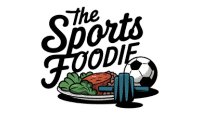Did you know that 90% of elite runners rely solely on sports nutrition products to fuel their training? That’s a staggering number, and it highlights just how critical proper nutrition is for athletic success. Whether you’re a weekend warrior or a competitive athlete, what you eat directly impacts your energy, recovery, and overall performance.

Think of your body as a high-performance car. Without the right fuel, it won’t run efficiently. The same goes for your muscles during exercise. A balanced diet rich in nutrients helps you train harder, recover faster, and stay healthy. On the flip side, poor food choices can leave you feeling sluggish and slow your progress.
In this article, we’ll break down how nutrition plays a key role in your athletic journey. Plus, we’ll share practical tips to help you make smarter food choices and boost your performance. Let’s dive in!
Introduction to Sports Nutrition
Fueling your body correctly is the foundation of athletic success. Sports nutrition is all about planning your meals to provide the energy you need for training and recovery while keeping you healthy. It’s not just about eating more—it’s about eating smart.

Key Components of Sports Nutrition
A well-balanced diet is crucial for any athlete. It includes the right mix of macronutrients—carbohydrates, proteins, and fats—along with essential vitamins and minerals. Each nutrient plays a unique role in supporting your body and enhancing your sporting capabilities.
For example, carbohydrates are your primary fuel source during intense workouts. They help maintain energy levels and prevent fatigue. Proteins, on the other hand, are essential for muscle repair and recovery. Fats provide long-lasting energy, especially for endurance activities.
The Role of Food and Nutrients in Training
Your nutritional needs depend on the type of sport you play and the intensity of your training. A marathon runner, for instance, requires more carbohydrates than a weightlifter. Tailoring your diet to your specific needs ensures you perform at your best.
Remember, what works for one athlete may not work for another. It’s important to listen to your body and adjust your meals accordingly. By aligning your nutrition with your training goals, you’ll see improvements in energy, endurance, and overall health.
effects of poor diet on sports performance
Ever felt like you’re running on empty during a workout? It’s not just about pushing harder—it’s about fueling smarter. What you eat directly impacts your energy, focus, and ability to recover. Without the right nutrients, even the most dedicated training can fall short.
Insufficient Carbohydrates and Energy Lapses
Carbohydrates are your body’s go-to fuel source during intense activity. When your intake is too low, you’ll likely experience energy crashes mid-training. This can leave you feeling sluggish and unable to perform at your best.
For example, endurance athletes need a steady supply of carbs to maintain stamina. Skipping this can lead to fatigue and reduced focus. To avoid this, aim for balanced meals that include whole grains, fruits, and vegetables.
Impact on Recovery and Endurance
Recovery is just as important as the workout itself. Without enough protein, your muscles struggle to repair and grow. This can slow your progress and increase the risk of injury.
Similarly, deficiencies in essential vitamins and minerals can hinder your body’s ability to adapt to training. For instance, iron supports oxygen transport, while antioxidants help reduce inflammation. Prioritizing nutrient-rich foods ensures you’re ready for the next session.
By focusing on your daily intake, you’ll notice improvements in energy, endurance, and overall performance. Small changes can make a big difference in how you feel and perform every day.
Impact on Energy and Endurance
Energy and endurance are directly tied to the foods you choose to fuel your body. Whether you’re training for a marathon or gearing up for a big game, your meal choices can determine how well you perform. Let’s break down the key factors that keep you going strong.
The Role of Carbohydrates in Maintaining Energy
Carbohydrates are your body’s primary fuel source during high-intensity activities. They break down into glucose, which powers your muscles and brain. For example, during a long event, low carb intake can lead to fatigue and reduced focus.
To avoid energy crashes, aim for a steady supply of carbs. Whole grains, fruits, and vegetables are excellent choices. Timing matters too—eating a carb-rich meal 1-2 hours before training can boost your performance.
Hydration and Its Effect on Performance
Staying hydrated is just as important as eating right. Even a small drop in body weight due to dehydration can hurt your strength and endurance. For instance, losing just 2% of your body weight in fluids can lead to cramping and fatigue.
To stay on top of your game, drink water throughout the day. During intense activities, consider sports drinks with electrolytes. They help maintain fluid balance and keep your energy levels stable.
By focusing on your meal timing, hydration, and the right amount of carbs, you’ll notice a significant improvement in your athletic performance. Small changes can make a big difference in how you feel and perform every day.
Muscle Recovery and Training Benefits
Your muscles work hard during training, and recovery is where the magic happens. To reach your goal of improved performance, you need to focus on the right nutrients and timing. Let’s break down how to maximize recovery and get the most out of your workouts.
Protein Intake for Muscle Repair
Protein is essential for repairing and building muscle. After intense exercise, your body needs amino acids to recover. Aim for 20-40 grams of protein within 30 minutes to two hours post-workout. This helps kickstart muscle repair and growth.
Great sources include lean meats, eggs, dairy, or plant-based options like beans and tofu. If you’re struggling to meet your goal, consider a high-quality supplement like whey protein. It’s convenient and effective.
Timing of Meals in Relation to Workouts
When you eat is just as important as what you eat. Pre-workout meals should include carbs for energy and a bit of protein. Post-workout, focus on protein and carbs to replenish glycogen and repair muscle.
For example, a banana with peanut butter or a smoothie with Greek yogurt can work wonders. Timing your meals right ensures your body has the fuel it needs to recover and perform.
- Nutrient-dense foods help maintain ideal body weight and support recovery.
- Healthy fats, like those in avocados and nuts, provide long-lasting energy.
- Well-chosen supplements can fill gaps in your diet and enhance performance.
By focusing on these strategies, you’ll meet your goal of faster recovery and better performance. Small changes can make a big difference in how you feel and train every day.
Importance of Vitamins and Minerals
Vitamins and minerals are the unsung heroes of athletic performance. They play a critical role in keeping your body energized, strong, and ready to tackle every training session. Without them, even the most dedicated athletes can struggle to reach their full potential.
These nutrients are essential for energy production, muscle repair, and overall health. Whether you’re pushing through a long hour of endurance training or recovering after a tough workout, vitamins and minerals ensure your body functions at its best.
Iron and Oxygen Transport
Iron is a game-changer for athletes, especially those focused on endurance. It helps transport oxygen to your muscles, keeping you energized during long sessions. Without enough iron, you might feel fatigued and struggle to maintain your pace.
For example, endurance athletes often need more iron than the average person. Including iron-rich foods like spinach, lentils, and lean meats in your meals can make a big difference in your performance.
Antioxidants and Recovery
Antioxidants are your body’s defense system against stress caused by intense training. They protect your cells from damage and support faster recovery. Foods like berries, nuts, and dark chocolate are packed with these powerful nutrients.
Staying hydrated with plenty of fluid also helps antioxidants do their job. Pairing water with nutrient-rich snacks ensures your body recovers efficiently over time.
By focusing on a balanced intake of vitamins and minerals, you’ll notice improvements in energy, endurance, and overall performance. Small changes in your diet can lead to big results on the field or in the gym.
Practical Nutrition Tips for Athletes
Optimizing your nutrition can make a world of difference in how you train and recover. Whether you’re aiming to boost energy, prevent fatigue, or support muscle growth, the right strategies can help you reach your goals. Let’s dive into some actionable tips to fuel your activity and keep you at the top of your game.
Simple Meal Timing Strategies
When you eat is just as important as what you eat. Timing your meals around your workout can help you maximize energy and recovery. For example, eating a balanced meal 2-3 hours before training gives your body time to digest and convert food into fuel.
Post-workout, aim to eat within 30-60 minutes. This is when your body is most receptive to nutrients. A mix of protein and carbs, like a smoothie with Greek yogurt and fruit, can kickstart recovery and prevent energy loss.
Selecting Nutrient-Rich Food Sources
Not all foods are created equal. Focus on whole, nutrient-dense options to fuel your activity and support growth. Lean proteins, whole grains, and colorful fruits and vegetables are excellent choices. These foods provide the vitamins, minerals, and energy you need to perform at your best.
Here are some quick tips for choosing the right sources:
- Include lean proteins like chicken, fish, or beans in every meal.
- Opt for whole grains like quinoa or brown rice for sustained energy.
- Snack on nuts, seeds, or yogurt to keep energy levels stable.
By making small, consistent changes to your nutrition, you’ll notice improvements in energy, recovery, and overall performance. Start today and see the difference it makes!
Developing a Personalized Nutrition Plan
Creating a nutrition plan tailored to your needs is a game-changer for your athletic journey. It’s not just about eating healthy—it’s about understanding what your body requires to perform at its best. A personalized approach ensures you’re fueling your type of activity and meeting your unique goals.
Start by assessing your current habits and dietary needs. This includes evaluating your body composition, daily intake, and any specific health concerns. For example, if you’re an endurance athlete, you might need more carbs and minerals like iron to support long training sessions.
Identifying Nutrient Gaps
One of the first steps in developing a plan is identifying where your diet might fall short. Are you getting enough protein for muscle repair? Are your kidneys supported with proper mineral intake? These questions help you pinpoint areas for improvement.
For instance, if you often feel fatigued, you might need more iron-rich foods like spinach or lean meats. Or, if recovery feels slow, increasing your protein intake could make a difference. Small adjustments can lead to big results.
Consulting a Dietitian
Working with a registered dietitian can take your nutrition to the next level. They can help you create a plan that fits your body type, activity level, and goals. A dietitian can also address specific concerns, like supporting your kidney health or optimizing your mineral intake.
They’ll review your current habits and suggest changes that are realistic and sustainable. This professional guidance ensures you’re on the right track to achieving your athletic goals.
Steps to Build Your Plan
Here’s how to get started:
- Track your current meals and snacks for a week to identify patterns.
- Set clear goals, like improving energy or speeding up recovery.
- Incorporate nutrient-dense foods that align with your activity level.
- Regularly review and adjust your plan as your needs evolve.
By taking these steps, you’ll create a nutrition plan that supports your body and helps you perform at your best. Remember, consistency is key to building healthy habits that last.
Conclusion
What you eat today shapes how you perform tomorrow. Proper nutrition is the backbone of energy, recovery, and overall health. By making smarter food choices, you can train harder, recover faster, and reach your goals.
Even half a change in your eating habits can lead to noticeable improvements. Focus on balanced meals rich in carbs, proteins, and essential nutrients. Small, consistent steps make a big difference over time.
Start today. Swap processed snacks for whole foods, hydrate well, and time your meals around workouts. Your body will thank you with better performance and faster recovery.
Ready to take the next step? Apply these simple tips and see the results for yourself. Your journey to peak performance begins with what’s on your plate.


